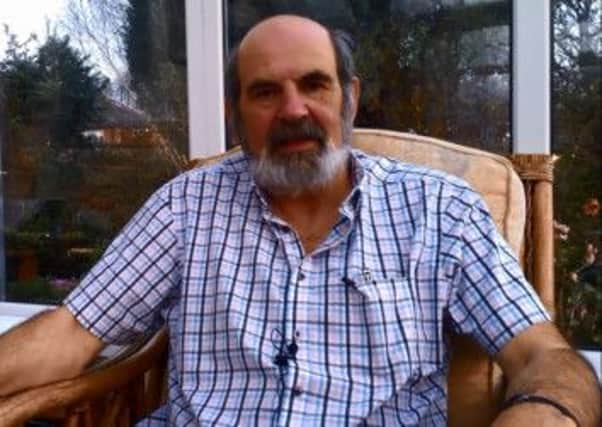‘Hooded man’ Michael Donnelly welcomes reopening of ‘torture’ case


Former internee Michael Donnelly, from Londonderry, said that he has been overwhelmed by the reaction to calls for a human rights case into the interrogation of the ‘hooded men’ in Ballykelly to be reopened.
The so-called ‘hooded men’ were arrested upon the introduction of internment in Northern Ireland in 1971 and taken to a secret ‘interrogation centre’ in Ballykelly. There, they were subjected to ‘deep’ interrogation techniques. The techniques included being made to stand against walls in stress positions for hours at a time and being bombarded with excruciating ‘white noise’.
Advertisement
Hide AdAdvertisement
Hide AdThe treatment of the ‘hooded men’ was the subject of a landmark court case between the United Kingdom and the Republic of Ireland.


The European Court of Human Rights ruled in 1978, after an appeal by the United Kingdom, that the men’s interrogation constituted ‘inhumane and degrading treatment’ but, crucially, could not be categorised as torture.
Now, with new light shed on the case after a team working for RTÉ uncovered previously classified documents, the Republic of Ireland has announced it is to seek to have the case reopened.
The decision was welcomed in Londonderry by one of the hooded men, Michael Donnelly, who has no doubts that his treatment in Ballykelly represented torture.
Advertisement
Hide AdAdvertisement
Hide AdHe said: “We had been writing to them (the Attorney General’s office in Dublin) but we just didn’t think it was going to go anywhere so we decided, at the last minute, to take a judicial review to force their hand. We got a reply back and they said would we put off the judicial review. That was due on the Monday and they asked that we would put it off, because they had a cabinet meeting on the Tuesday. Well, we still went ahead with it and we got the review and it was in our favour. They very quickly decided to go ahead with the case.
“We had a press conference in Dublin, on the Monday. When that happened the response was overwhelming. I couldn’t believe it. We realised there was still a big interest. That is the first time I started to think that maybe this will go ahead. I was still surprised when the news came through.”
Mr Donnelly said that the reopening of the case could have implications elsewhere in the world: “George Bush had a lot of people, a lot of lawyers, involved in it. They implied that what they are doing in Guantanamo Bay isn’t as bad as what happened in Northern Ireland in 1971 so therefore it is not torture. It is the word torture that they all seem to be scared of. They were happy enough with saying ‘it’s not as bad as inhumane and degrading treatment’ even though a lot of the methods were very similar.
“Obviously Britain would not want to be found guilty of torture so I had imagined there would be a lot of pressure from them on the government in Dublin and obviously there are the wider implications of it worldwide - especially in America. They wouldn’t want that definition of torture. If we win this, it is all going to go back to their recent behaviour and the way they have been treating prisoners - and the Israelis and the way they have been treating the Palestinians. God knows where it will finish up.
Advertisement
Hide AdAdvertisement
Hide Ad“There are an awful lot of papers and it is quite surprising, some of the stuff. One of the things was that the British government in 1977, after Britain was found guilty of torture - in 1975 I think it was - reopened the case and appealed it. They wanted it downgraded from torture to inhuman and degrading treatment and they got their way even though, as some of the papers have shown, they referred to it themselves as torture at that time. They were calling it torture and they took it to the European Court to say that it wasn’t torture.
“There is a note, from Mervyn Rees to the British Prime Minister, at that time it must have been Callaghan, to say that the use of torture in Northern Ireland was a political decision and that it was made by Ministers including Lord Carrington, Defence Secretary and Reginald Maudling, who at that time was Home Secretary.
“The decision to proceed with the torture, according to Mervyn Rees in these documents, was made at the highest level of government - it was a Cabinet decision. They were actually talking about torture and appealing against it being classified as torture.”